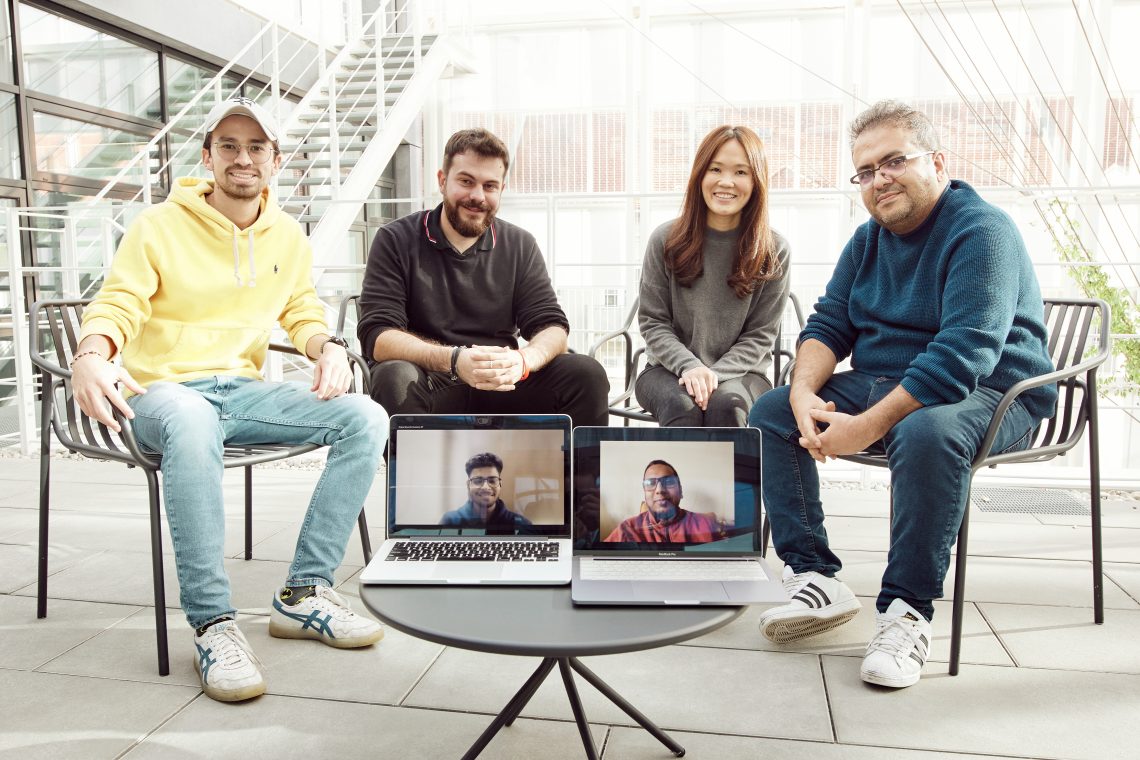Pfaff, a 60-year-old family-owned business in Germany’s Bavaria region that develops injection molding tools for automotive sealing systems, has a long history of being innovative. One of its molding injection technologies became a world-wide standard and the company has long been a leader in this niche market: It is one of the top three global players. But the market has changed a lot in the last 10 years and competition is increasing so Pfaff needed to find new sources of growth that would help it stay ahead. That is where going digital comes in.
Pfaff was taken over by a new family three years ago and a different leadership team put into place. Marc Mataix, a former M&A advisor, was hired as chief financial officer and a year and a half later was also given the role of chief digital officer because the company realized that the management of the company’s finances and data “had to get closer,” he says.
Under Mataix’s leadership the company is not only leapfrogging into the digital age, its aiming to help its customers do the same. In talking to its customers – companies that supply parts to automotive companies like BMW – Pfaff realized that its clients had no means to gather data about their production lines. “We had a gut feeling that this could be a good area to target with a lot of potential, but we know about molds, and not so much about digitization, so we had to figure out to execute,” says Mataix.
Pfaff solicited the help of the Digital Product School at UnternehmerTUM, the Technical University of Munich’s Center for Innovation and Business Creation, to help it define and develop its first digital product offering – a Software-as-a-Service (SaaS) tool to help its clients collect production floor data.
“The idea was to use the knowledge of our experts -people with 40 years of experience in molding – to ask the right questions but then to find a team outside the company with digital expertise to not only check if we are on the right track but to help us technically to develop the right tools and execute,” says Mataix.
Pfaff’s journey from ideation to iteration includes some valuable insights on what it takes to become a future-ready SME.
Getting Started
Before Pfaff could take advantage of the skillsets available at the Digital Product School it had to define what problem it wanted to tackle with a digital solution. Defining what customers’ challenges were was not an easy task. The people who work on production lines and the people who design and develop the molding injection tools have no means of sharing data and no common language, says Mataix. Pfaff determined that it needed to gather data from the molds to see how it can better serve its customers. It is partnering with a sensor manufacturer to equip its molding equipment with technology that can track what is going on in production lines. But it also needed to develop a digital tool to be able to capture the data.
Here, too, it needed help. The Digital Product School involves experts from all areas of industry; each of them has worked in some role in digital product development before joining the team, says Michael Stockerl, the school’s director.. There are currently 10 teams working in parallel with the school’s partners. Each team consists of people with the skills to design a new digital product including product management, interaction design and software engineering. These teams are led by experts from the Digital Product School through the different phases of product discovery during a three-month program. The product discovery phase aims to validate the assumptions about the user’s problem and the solution as quickly and as cheaply as possible. Once they start building the solution, the team builds it in small incremental iterations to allow the team to adapt if new insights suggest a change of direction .“The goal is to deliver some value to the customer as quickly as possible,” says Stockerl. In the process, each team faces a lot of challenges. In Pfaff’s case, the team needed some time to wrap their head around the niche environment Pfaff is operating in and to start to understand the language of the mold experts and the molding injection tool company’s customers. Pfaff is one of the first partners of the new initiative “FamilienunternehmerTUM”, which helps family-owned businesses connect to programs like Digital Product School to stay innovative and competitive.
“ Our first product will give our customers transparency on their production line – that in itself is something that customers value a lot,” says Mataix. Once there is enough data to locate problems Pfaff may develop other digital tools, such as a predictive maintenance service, with the Digital Product School’s help, creating yet another new revenue stream. This would enable clients to have less down time, helping them earn more revenues and allow Pfaff to send the right people and/or react faster when problems occur. “We see that as a second step,” he says. “First, we have to train to run, then we will be able to enter a marathon.”
Pfaff plans to begin selling its first SAAS offering in 2023. It expects to be the first company in its sector to begin adding digital services to its product line, giving it an edge over competitors competing only on price, says Mataix.
Key Takeaways
The company says that moving from ideation to iteration has taught it a lot of valuable lessons. “What I have learned is the first thing you need to do with digital products is determine why you are developing it and what is the problem you are solving,” says Mataix. “That is why I tell my people I want to hear problems I don’t want to hear solutions.”
Once the first customer need was established it was necessary to get people with different skill sets to work together. People in tech and people in the molding industry don’t always understand each other. “They don’t use the same language so you need someone neutral who can translate and coordinate but also understand the strategy and abstract information and explain it in a meeting of our innovation committee,” says Mataix.
Pfaff’s innovation committee consists of people from the management teams in Europe and the U.S., covering a wide range of competencies, such as sales, marketing, customer service and operations and excellence. Mataix is also a member of the committee. He says his M&A experience, which included having to place a value on the innovation of small biotech and tech companies, helped him understand the power of technology and the ability of innovation to generate future revenue streams.
To get sign-off, those involved in the project had to agree on a one-page summary of what they planned to do, along with a budget, and submit it for approval.
That is when the hard work started as innovation is rarely linear. “A lot of things don’t work; what is important is how you react,” says Mataix. “We have to be prepared to be vulnerable because in comparison with mold making digital is new for us.” Embracing digital products and entering partnerships also required a change in mindset, he says. The mold making industry is very secretive and the company was used to keeping its cards close to its chest. “We come from an industry in which your know-how is what you protect the most, “ he says. “In the digital world that is not something that is possible for a company like ourselves.”
In addition to working with digital experts at UTUM’s Digital Product School, Mataix, a Spaniard by birth, said he learned that it is important to involve people from a lot of cultures in the innovation process. “Even though we are a small company we have people from America, China, Germany and Spain,” he says.“ When you use the strength of every culture the speed you can achieve is amazing.”
Another key learning was that you can define the end goals and milestones for product innovation but not for digitalization. “When it comes to innovation in business models, we need to be flexible and allow ourselves to fail,” says Mataix. “And, he adds, if I put on my CFO hat, ensure we don’t lose a lot of money in the process.”
For more about Unternehmertum’s program for family-owned businesses click here.
This article is content that would normally only be available to subscribers. Sign up for a four-week free trial to see what you have been missing







